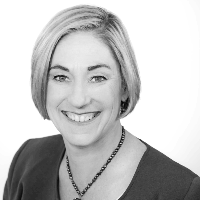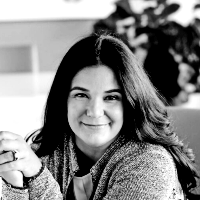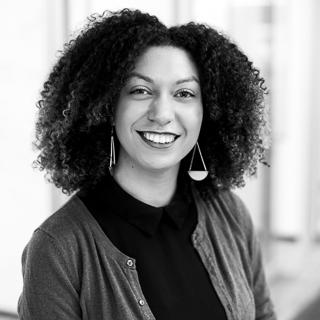7 Financial Lessons That Changed Lives

When you sit down to reflect on your financial journey, you can usually uncover a handful of life lessons. You might observe your parents’ financial decisions and learn what missteps to avoid. Then there was that trial-and-error period when you maxed out your credit cards and learned about paying the price, literally, in interest. But even when things don’t go as planned, you can ask yourself important questions about what went wrong and what can I do better to learn and grow.
We spoke to seven financial educators about financial lessons they learned and the impact those lessons had on their lives. We asked them this question: “What’s the most important financial literacy lesson you learned?” Here’s what they had to say.
Lesson #1: Use a budget to make a plan for your money.
Budgeting allows people to create a spending plan for their money that ensures that, one: they will have enough money to cover their needs, and two: they will have a path to reach their financial goals. By following a budget, people are less likely to fall into debt or are more equipped to climb out of a negative cycle of debt.
Brian Brandow, Debt Discipline
One of the most important financial literacy lessons I've learned is always to have a plan for your money and have regular check-ins on your overall financial picture.
I never had a plan for my money and accumulated over $109,000 worth of consumer debt. Once I began budgeting and building my money plan, I was able to pay off the debt in under five years. By tracking and checking in monthly, I was able to control my bad money habits and turn them around.
I'm now working with my three children to teach them more than I ever knew about personal finance at their age so as they begin their financial lives, they will have a tremendous financial literacy foundation.
Lesson #2: A penny saved is better than a penny earned.
The time value of money (TVM) is the financial concept that money available right now is more valuable than an equal sum of money available at a later time. Provided that money can earn interest, this core principle of financial education holds that any amount of money is worth more the sooner it is received.
Michael Kern, Talent Financial LLC
One of the most important lessons I've learned throughout my life is also a famous cliche. A penny saved is a penny earned. Interestingly enough, I've found that this cliche doesn't go far enough in how powerful saving is. It should say a penny saved is WORTH MORE THAN a penny earned. When you earn one dollar the government always takes its cut. After taxes, you may only be left with $0.75 ($1 * (1-.25)) to use on your expenditures. But, if you save $1 that you would have otherwise spent on something else, it's like earning $1.33 ($1 / (1-.25)). This illustrates that cutting $1 of expenses has more power than earning $1 of income. While both increasing your earnings and decreasing your expenses are things you should focus on, because of this principle, I've learned reducing your spending is often the most effective route to take.
Lesson #3: Delayed gratification will pay off in the future.
We all know that building wealth for the future is more important than spending on fleeting wants and desires. It’s hard to put this knowledge into action, however, because it directly conflicts with how we’ve been wired. Humans are addicted to instant gratification. In all areas of life we’ve been conditioned to see it and want it—finances are no exception. Relying on financial tools, such as budgeting and automatic deposits to savings, can change that mindset.
Brian Davis, SparkRental.com
One of the simplest but most fundamental mindset shifts around money is that anyone can replace their job income within five to 10 years if they funnel enough of their paycheck into high-yield investments. Anyone can retire young, but it requires a deferred gratification.
The appearance and trappings of wealth are counterproductive to the actual accrual of wealth. The more you spend, the less you invest, and the slower you build real wealth.
That’s because real wealth isn’t visible – it’s in your investable assets. Most people want to look and feel rich, they want a bigger house, faster car, and fancier dinners out, but those are the very things that prevent them from becoming rich.
To build real wealth, live frugally now so you can invest for compound returns and passive income. In just a few years, you’ll see the fruits of that deferred gratification and can live a wealthier lifestyle based on your invested assets.
Lesson #4: Don’t be discouraged by negative financial stereotypes.
Money and gender have a complex relationship. Due to gendered structural inequalities in our society, women are directly impacted by how we teach about money, the availability of financial resources according to their needs, and the financial conversations about them.
Victoria Lowell, Empowered Worth
The biggest financial literacy lesson I have learned is how much women, in particular, are under-prepared in this topic. My years as a financial advisor and a personal finance coach and educator have taught me that women shy away from dealing with most financial decision-making. Women have for years been convinced that men are more adept not just to mathematics but to dealing with the finances of their families. A fact that holds true for women who are entrepreneurs, professionals, and C- Suite executives.
Lesson #5: Have honest conversations about money.
It’s still a taboo for many to speak openly about personal financial situations. Luckily, a new appreciation for self-awareness is changing the conversation. It’s cool to be introspective. Ask yourself how your relationship with money was formed and identify what negative financial baggage you still carry.
Kathleen Burns Kingsbury, KBK Wealth Connection
For someone who was born highly verbal, I, too, struggled to openly discuss money for many years. I found that I could proudly share when I had saved money, but not when I had made it. Like many middle-class families, mine valued thriftiness. From an early age, I was taught to save, budget, and balance a checkbook. I am grateful for these lessons, as I know many adults who didn't learn these basic skills. The money silence in my home crept in when it came to earning money and attaining success. It was okay to make a living, pay your bills, and save for retirement. But being profit-motivated was seen as distasteful.
I learned that to grow professionally and personally, I had to open up and start talking about money. Not just about dollars and cents, but about my thoughts, feelings, and values about financial matters. The only way for me to reach the next level was to bust through my family's money taboos and start honestly talking about wealth.
Lesson #6: Change your money mindset.
After you’re honest with yourself about your financial mindset, take proactive steps to change any negative behaviors that you don’t want to carry into the next phase of your life. For instance, why do you rely on credit cards to fill your life with material goods? The answers may be uncomfortable and messy, but ultimately, working through your financial behaviors will lead to personal growth.
Felicia Kelly, Coaching Christians to CoinsⓇ
After finding myself homeless with ruined credit and a negative $1,000 bank account, I'd had enough. I was tired of making great money and not having anything to show for it. No matter how much money I made, I managed to have the same problems as when I made minimum wage. I decided to make a change and learned the following lessons about financial literacy along the way:
- Invest in yourself: I invested thousands of dollars and hours of study into changing my mindset and mastering decision-making skills which ultimately saved my life.
- Create a money system: In 2017, I created The Five-Step Signature Money System™ and in 2018 alone, used it to pay off $45,000 of debt without sacrificing the luxury lifestyle I enjoy.
- Don't wallow in your misery: I turned my tragedy into expertise and began helping others create simple budgets.
- Use your experience to start a business: I now have a thriving coaching practice teaching entrepreneurs how to apply my Five-Step Signature Money System™ so that they can have the financial security that’s necessary while they build their dream lives.
Lesson #7: Share your financial story with others, and listen in return.
Frankly, we as a society have a problem speaking about our personal finances. It may be easy to tell others when we’ve gotten a big promotion or when we’re finally able to purchase a home after years of saving, but what about when the conversations aren’t so pretty? What happens when we need to bring up issues of unequal pay in the workplace? The only way to fix these problems, and potentially avoid them entirely, is by opening up to others about our financial struggles—in addition to our successes.
Stacy Trinh, Keeping Up with the Changs
When people think of financial literacy, they probably envision dry, complicated information that's painful to sit through and learn.
However, I've found the best means to understand money concepts and gain knowledge that is so much richer and influential on my personal life is by focusing on a different medium of transferring knowledge: talking story.
I consider my financial savvy to be definitely above average, yet I learned very little of what I know from financial professionals or in formal settings.
A lot comes from informal conversations with friends and family, by merely talking to them and making it known that I love to hear about their experiences and information.
When people have positive experiences, I learn to replicate them. When people have negative experiences, I learn to avoid them. What this essentially does is allow me to gain a lifetime of financial wisdom without having to make a lifetime’s worth of mistakes. And I retain the information well because I associate them with a story and connect them to a person.
It's American culture to be mum about our finances, but people share their personal financial information with me because they know my desire to listen and learn from their stories is genuine. Whether it's a sale, tip in a news story, or personal win or fail, I'm one of the first people they tell it to because they want to help me gain more knowledge, which, in turn, helps themselves as we both raise our financial intellectual capital together.
Fruitful discussions are only possible because we have the ability to engage with one another and bounce ideas and questions. If I am reading an article from a Google search, I am only limited to what they post. But in a conversation, I can gain the insight I am looking for and hone in on the things that pique my interest by asking more and make these topics *actually* interesting.
It's also how I learned how to invest in real estate in my 20's, or bounce back from a failed online business venture. It's what helped me help a friend avoid a mortgage that would have left him eating ramen for the next 30 years and get coworkers to up paycheck contributions to their retirement.
Financial literacy is not just facts and research. Financial literacy can be social, reciprocal, and engaging with others. To me, it's what puts the personal in personal finance, which is certainly a much more exciting perspective to learn this information.
Bottom Line
Personal finance can be a long and difficult journey. It won’t be without mistakes and errors, but with every misstep comes an opportunity to learn. These seven lessons represent real-life experiences, and they serve as markers on the path that others have taken towards financial health. If you’re looking for direction, consider thinking of them as signposts.

Brian Brandow is a dad, husband, and personal finance blogger at Debt Discipline. He and his family have successfully paid off over $100,000 worth of consumer debt. Brian works in his community championing financial literacy by speaking and launching financial literacy programs.

G. Brian Davis co-founded SparkRental, a service designed to help everyday people replace their 9-5 income with rental income. As a personal finance writer and real estate investor, Brian spends most of the year traveling overseas. Connect with him through SparkRental.com at any time.

Felicia Kelly is the Chief Executive Officer of Rich Black Brand, a movement focused on empowering women and men of color to achieve success, create wealth, and spread a message of freedom across the globe. She is a speaker, author, and coach primarily known for her faith-based brand, Coaching Christians to CoinsⓇ. For over a decade, she has been helping clients to create their own signature money systems so that they can have the financial security that’s necessary while building their dream life at the same time.

Michael Kern double majored in accounting and finance at West Chester University of Pennsylvania. He worked several years at Ernst & Young, one of the top accounting firms in the world, serving some of the largest hedge funds and private equity funds out there. He now serves as the Controller for a software development company in Greenville, SC, and is the founder of Talent Financial, a personal finance and small business consulting firm. With a strong desire to help others achieve financial success, both personally and in small business, Kern helps clients at Talent Financial set up accounting systems and other processes for their businesses.

Kathleen Burns Kingsbury is a wealth psychology expert specializing in personal finance for women and couples. Author, speaker, and podcaster, Kingsbury aims to help individuals and finance professionals communicate more effectively about money. You can find her at BreakingMoneySilence.com.

Victoria “Vicky” Lowell is a financial educator dedicated to empowering women with the knowledge to become active participants in the planning of their financial future and well-being. While engaging in frank, open dialogue with women in the community, she came to realize the importance of educating women about their finances. To that end, in addition to financial planning, she enhanced her knowledge of the immediate and long-term financial implications of divorce as a Certified Divorce Financial Analyst® (CDFA®). In late 2018, she left UBS to follow her passion of helping women assert themselves fiscally and founded Empowered Worth, a resource for financial coaching geared toward educating women to not only meet their immediate economic needs but also attain long-term goals. She provides the tools needed to empower women of all ages.

Stacy Trinh, aka Aunty Chang from Keeping Up with the Changs @keepingupchangs, is a personal finance blogger who is set on a mission to show people that numbers are overrated when it comes to personal finance. She learned that by defining her goal first, to stop working by age 40, it was much easier to care about her finances and figure out the right money moves. By age 30, she had two rental properties and a six-figure 401k to her name. She wants to teach others how to identify their goals and use money to make them happen.




